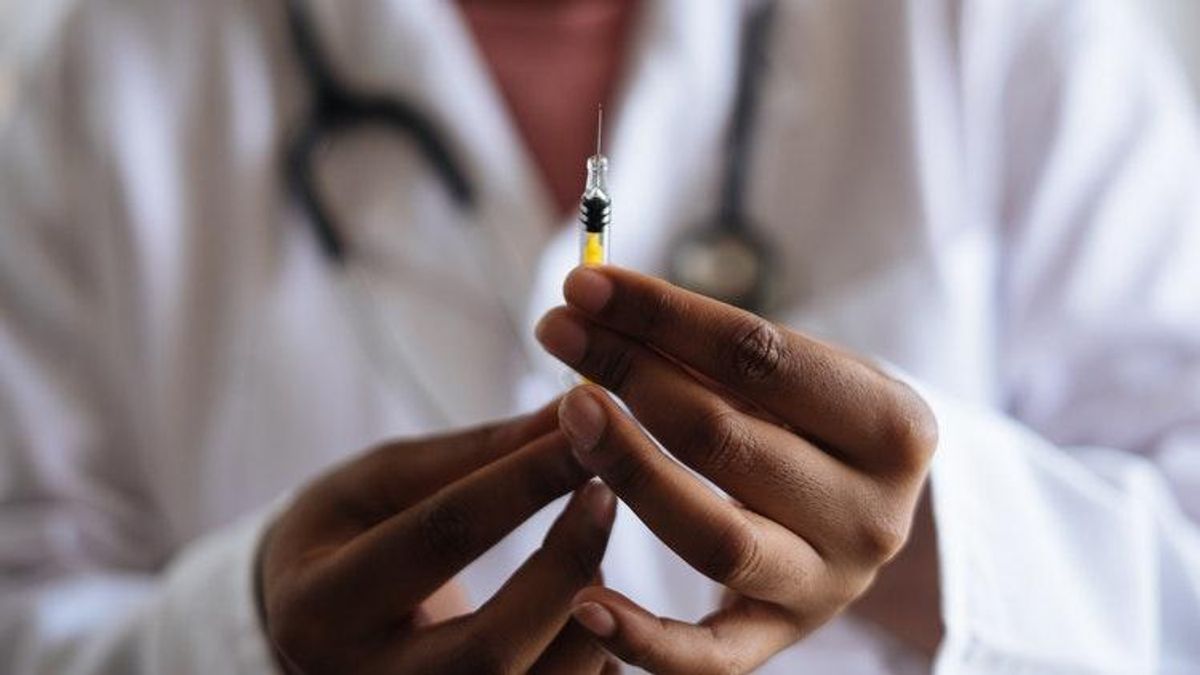Allow me to begin with scenes from my life:
In my office men’s room, a man kicks the toilet seat up with his foot to avoid touching it. Passengers on the subway look suspiciously at her other, searching for signs of illness, and quickly move away from anyone who coughs. Family members or friends perceived to be “at risk” are admonished to be “extra careful” with their health. Healthcare professionals express fear of being exposed on the job. Many discuss their hopes for a “Manhattan Project” in which international brainpower is focused on quickly coming up with a vaccine: Is next month soon enough?
Sound familiar? Not surprising. During this time of global pandemic, I suspect you are all much too familiar with the scenes I described.
However, I am going to date myself now. These are also scenes from my life during the AIDS crisis. With a few important distinctions.
“At risk” was often described in a hushed tone, the reason for concern discussed in general terms to avoid labeling the individual at perceived risk as a member of the LGBTQ+ community. Ask someone in their late 40s and beyond how often they were also discretely admonished (wink wink) to “stay safe,” and how that made them feel. And what about that Manhattan Project to fast track a vaccine? During the AIDS crisis, LGBTQ+ folks and those who care about communities of color fervently hoped for governments around the world to aggressively pursue a vaccine, but it was little more than wishful thinking. We knew in our hearts that for all too long our own government didn’t care all that much about AIDS and its victims.
So now, COVID-19. Currently, people we know and love are being stricken and dying, leaving us in fear, and in grief. Well, I’m not bitter but let me just say: I have been here before. And maybe you have, too. If you or someone important to you is currently living with HIV, you’re here now.
My Head Gets It. But My Heart Not So Much
Let me share what a client said to me last week: “I am just so angry. The world has been impacted by HIV for some 40 years. I’ve been on medication for 10 years. Bring up the topic of an HIV vaccine and you get eye rolling and shoulder shrugging. Whatever. Talk about COVID-19 and it’s all about getting that vaccine before the end of the year.
“I understand the difference between COVID-19 and AIDS. But at the same time, I can’t help but feel stigmatized all over again when I witness this sense of urgency over a COVID-19 vaccination. What about me and other people who are living with HIV? I’m still waiting for our Manhattan Project!”
My client was much younger than I am. They came of age after HIV became a manageable condition. And so while I shared their frustration, my own perspective is grounded in a much earlier time, a time when I watched people I deeply cared about slide into decline and slip away.
What do we do with the feelings that the current pandemic stirs up in us? Of course, we want to see a vaccine and we want to see it as soon as humanly possible, for the benefit of our country, the global community, and ourselves. But still, the question lingers as to why this sense of urgency and passion has not been directed toward a vaccination against AIDS. What about us?
I can’t address this as an epidemiologist or an infection disease physician, both of whom might have a perfectly rational and objective answer to my question. I don’t doubt there are logical and realistic answers to this question. I lost a good friend to COVID-19; I am watching the devastation in my own city. Yes, I get it. Having said that, I am doubtful that even the most logical and realistic argument as to why the priorities or the challenges are different for COVID-19 versus HIV is going to leave me fully persuaded. And certainly not pacified. After all, I watched people die of HIV, and I am still watching people living with the day-to-day responsibilities and uncertainties of managing HIV.
Sure we have made incredible process in making HIV a manageable condition. But my still-hurting heart has a question. Have we really and truly focused all our potential brainpower in pursuit of eradicating HIV?
Getting Back to Hope
Okay, that was my vent. Now what I can do is talk about coping emotionally, as a mental health professional, who is sitting with my own stirred up feelings about the need for a vaccine against HIV infection, and frustrations over lack of progress, as well as listening to my clients who are reacting similarly.
First, don’t deny your own feelings. The way you feel is the way you feel. If you’re living with HIV, or know someone who is, it’s only human to walk around with some raw feelings, just below the surface, that can’t help but make themselves known.
Second, don’t criticize or judge yourself.You’re not being selfish, or shallow, or whatever other words you might have used to beat up on yourself or heard from others. Dammit, we have lived with HIV for too long, many of us have experienced devastating losses. It’s past time to get serious about eradicating HIV from the planet. You have a right to your feelings.
Vent! With someone who is willing to listen without judging your or trying to talk you out of your feelings. Let out your disappointment, frustration, anger, fear, or whatever emotions are bubbling up right now. And then give them a chance to vent, too.
Get educated. About progress on finding a vaccine against HIV. While you’re at it, you might also look into progress to date on a cure. Use your emotions to empower you to learn everything you can. Keep in mind that making assumptions about what isn’t being done can result in missing any evidence of progress.
Avoid the victim trap. This is not meant to be a criticism. But again, it’s hard not to question the lack of passion for finding an HIV vaccine with the prevalence of HIV in the LGBTQ+ community and communities of color. And let’s be honest, that’s a fair question. And this question inevitably leads to feelings of marginalization. I don’t argue that either. But beware of labeling yourself a victim, that only leads to other labels like helpless. Shift your focus to how far we’ve come and how much you’ve overcome!
Get empowered.Find ways to take action. Is there an organization you can get behind and support in some way, at the local or national level? Is it time to do your own part in galvanizing the HIV community to make a harder push in this direction? Use your frustration and anger to empower yourself!
Most of all: Keep hoping. To give up hope is to admit defeat. And what the world needs now is our collective hopefulness. Some brilliant minds are continuing to focus their brainpower on a vaccine against HIV. The quest continues. And who knows, as the scientific community pursues a COVID-19 vaccination, they may even learn something that can be applied to the development of other vaccines, including an HIV vaccination.
So here’s my advice: Keep your mind open to what’s possible. Stay optimistic and hopeful. Get support and be a support for others living with HIV. Follow Larry Kramer’s legacy and keep raising hell in your own corner of the world. Join the collective voice of all of us who demand action on making HIV history.
Gary McClain, MS, PhD, LMHC, CEAP, is a psychotherapist, patient advocate, and author in New York City, who specializes in working with individuals diagnosed with chronic and catastrophic medical conditions, their caregivers, and professionals. He often works with couples who are living with a chronic condition. He maintains a website, JustGotDiagnosed.com.
















































































